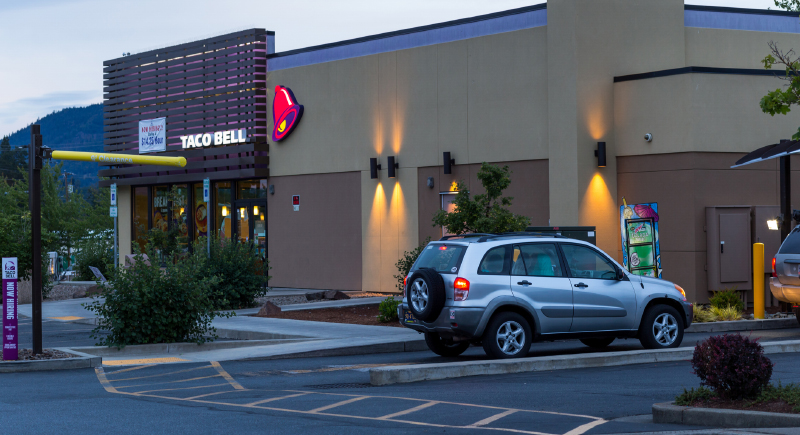A Man Ordered 18,000 Waters and Proved Taco Bell’s AI Isn’t Ready for Humans
Taco Bell pushed hard to modernize its drive-thru experience using artificial intelligence. Voice ordering rolled out across more than 500 locations and has handled over two million orders since its launch. The technology promised speed, convenience, and fewer mistakes.
That promise collapsed after a man ordered 18,000 cups of water, and the system accepted it without hesitation. The request made no sense, but the machine had no way to know that. This is where a human employee had to step in and shut it down.
The incident made it clear that the AI wasn’t broken, but it was working exactly as designed, and that was the real problem.
The System Processed the Prank Order

Image via iStockphoto/Strekoza2
The reason why AI didn’t flag the prank as suspicious is that there was no built-in logic system to recognize anything unusual about the request. The AI tool treated “18,000 waters” the same way it would treat any standard transaction. It lacked a mechanism to evaluate scale, detect improbable patterns, or pause for verification.
Public Videos Exposed Limitations
After the water cup order circulated online, more clips began surfacing. In one, a customer asked for a Mountain Dew and got stuck in a loop of repeated drink prompts. Every time they gave their drink preference, the AI responded with the same prompt: “And what would you like to drink with that?”
No matter how clearly the individual repeated their words, the voice assistant failed to register them and kept asking the same question. The exchange became so absurd that the customer eventually gave up and drove away.
Another clip showed a person ordering McDonald’s food at Taco Bell. These interactions further prove how easily technology can become confused by minor deviations in phrasing.
Taco Bell Responded by Scaling Back AI Usage

Image via iStockphoto/Dragos Condrea
Soon after, Chief Digital and Technology Officer Dane Mathews stated that the company would slow its expansion and reassess how AI should be used. The new approach includes training employees to monitor the platform and intervene when necessary.
Taco Bell no longer treats AI as a standalone replacement but as a support tool that works under supervision. Mathews further admitted that AI underperformed during high-volume periods.
The system broke down when faced with fast-moving, complex interactions. As a result, the intended benefits, such as reduced error rates and faster service, didn’t materialize in busy environments. Instead of helping staff, AI often created bottlenecks that employees had to fix.